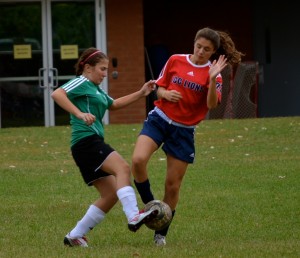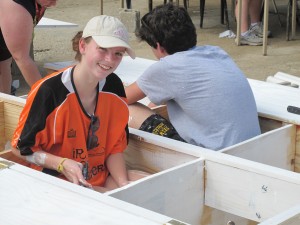American psychologist Wendy Mogul wrote a best-seller for parents of teens a couple of years ago titles The Blessing of a B-Minus. She reminds readers that the upsetting aspects of adolescence are not only normal, but also necessary. They are the blessings that represent healthy growth. Both students and parents have to find a way to put them in perspective and react thoughtfully instead of impulsively. In Mogul’s words, “bad grades, emotional outbursts, rudeness, breaking the rules, staying up late and experimentation become signs that a teen is actually on course, not headed for disaster.”
So let me tell you about a visit I received just over a week ago from an LCC alumnus, now 20 years old. He made a formal appointment to see me, only telling my assistant that it was personal. When he graduated three years ago, he had gone through a difficult time on a lot of levels: he was very competent, but academic achievement in grade 11 was often well below potential. There were complicated personal dynamics at play and he was an elite athlete involved heavily in community sport with demanding coaches and others who did not really see him as a whole – just as a cog in his team’s dynamics. In short, when this young man was in grade 11, he was caught in a tight squeeze of many demands and too little time. I remembered that he had actually missed his graduation to play his sport in a showcase match, which was a metaphor for unbalanced priorities. Despite efforts by many teachers and administrators, LCC life simply became a second-class priority in this boy’s life.
Imagine my surprise when a confident young man sat in my office a couple of weeks ago. He openly told me that looking back, today he is very disappointed and embarrassed by his own behavior while at LCC. He felt he needed to tell me how much he now knows – how the academic and character foundations laid at LCC have served him well. He went on to an American prep school where he flourished in both sport and the classroom. He credits it all to LCC. Two weeks ago he was offered a significant scholarship to play his sport at the NCAA Division I level at a prominent university in New York State. He said he owed most of it to LCC – to his teachers who set high standards and held him accountable, to his advisor, and to the many people who showed interest in him as a complete person.
All of this came out of him very calmly, very genuinely and in significant detail. I was impressed by his maturity. It is not in the DNA of every young man to recognize what he was expressing. But then to go further and make a formal appointment to see me and express his thanks in person was another level of maturity and responsibility.
But that’s not all. He explained that he had been working for the past couple of weeks – and will be saving and training over the summer before university begins in the fall. He pulled out a thank you card he had written and explained that he needed to do more than just express his thanks. He took his first $500 pay cheque and signed it over to LCC, saying that he owes a great deal to the school – and he looks forward to being an active and constructive member of the alumni well into the future. Impressive to say the least!
What I know for sure is that the work of our teachers is very valuable. It can be demanding, tiring, occasionally irritating, but always extremely valuable in the long term. Education is fundamentally about helping each student build character and find ways to embody important values. It’s the long-term impact that will serve our students for a lifetime. –Chris Shannon, Headmaster



![photo[7] photo[7]](https://wearelcc.ca/wp-content/uploads/2013/03/photo7-300x168.jpg)
